With
from , we were thinking the same thing: how many French companies did YC? So we went to the YC website with their database and discovered these companies. The nice thing is that we can filter by region:We discovered that 69 French companies have done YC. Nice number! Then I tried to find an in-depth article on the subject. I read this, this, this, this, this, this, and this. But these articles didn't satisfy me. So I decided to write this article. Thank you, Louis, for helping me with this article (he wrote one line) and for this inspiration.
Enjoy reading it!
Intro
Y Combinator (YC) was established in 2005 by Paul Graham, Jessica Livingston, Trevor Blackwell, and Robert Morris. They helped over 5,000 companies with a combined valuation exceeding $600 billion.
Since 2014 and batch W14 with Algolia and Motionlead. Since 2010 with Docker (S10) YC have begun to welcome Frenchies in their batches and since then they welcomed French startups at every batch! (except W10, W11, S11, W12, S12, W13, S13, W15, and W16).
If you want to hear more about the story, you can listen to this amazing video below with Jessica Livingston:
Let’s discover the numbers behind those 69 startups 91 startups. In fact, numbers are wrong in the YC website and database, getting to this list was hard but thanks to this post and some difficult searches we achieved it!
We will add: Actiondesk, allure systems, Cargo, Docker, Finnt, Front, Hellobill, Hiresweet, Hivy, Jam.gg, Manycore/Inboxbooster, Lantern, Metreecs, Numind, Panora, Phospho, Presti AI, Quivr, Respaid, Slite, Sqreen, Twenty, and Upflow
We will not add: Autone, Beau, Checkr, Deel, Educato AI, Evoly, June.so, Ledger Investing, Nango, Moots, Socialcam, SpotAngels, Stacksync, Triplebyte, Wit.ai, and Yuma (because they were never based in France and/or have only one French founder within their founding team. Also because I don’t want to be too chauvinistic.)
We will remove: Wavy (I don’t know if they’ve a link with France. I found nothing.)
I may also have forgotten some French startups, don’t hesitate to ping me, I’ll add them!
You can find the complete list below after the numbers.
Numbers 🔢
The French conquest of the United States
Among the 5018 YC startups from S05 to F24 there is 1.81% of French startups.
22.47% of the European startups are French.
There’s an average of 3.91 French startups per batch since W14.
Fundraising
In total, they fundraised $1,496,888,715.00 → €1,427,530,376.39 (Sources: a few but mainly Crunchbase)
2010-2020 vs 2021-2024
From 2010 to 2020: 38 startups
From 2021 to 2024: 53 startups (+15)
Founders
There are 187 founders who did YC, an average of 2.04 founders per startup.
17 solofounders, 53 founding team were 2, 20 were 3, and 1 team were 4. The maximum founding team is 4 (Presti AI).
Acquisitions, successes, dead startups
THE 3 big successes: Algolia, Docker, and Front
11 acquisitions: Actiondesk (by Datadog in November 2023 ), Allure systems (by Farfetch in December 2021) Bulldozair (by Infopro Digital in February 2024), ClipDrop (by Stability AI in March 2023), Dashblock (by Airtable in July 2020), Data Mechanics (by NetApp in June 2021), Hivy (by Managed by Q in September 2017), Hublo (by Criteo in 2015), Joe (by La Banque Postale in November 2022), Motionlead (by Adikteev in May 2015), and Sqreen (by Datadog in February 2021)
14 Series A+: Airthium, Beyond Aero, Bitstack, Carbonfact, Dagger, Finary, Formance, Jam.gg, Lago, Mindee, Photoroom, Riot, Slite, Upflow
34 Pre-seed/Seed: Argil, Brainboard, Bujeti, Café, Crew, Depot, Escape, Finnt, Hiresweet, HyLight, Kiosk, malibou, ManyCore/Inboxbooxster, Moneco, Numind, OpenReplay, Osium AI, PaletteHQ, Phospho, Plume, Presti AI, Quack AI/Sourcepulse, Quivr, Respaid, Sandra AI, Sarus, Skypher, The Forecasting Company, Topo, Trendex, Twenty, weweb.io, Whaly, WhiteLab Genomics.
15 YC Funds: Axolo, Blitz, Cargo, Fragment, Jamble, Jitter, Mailwarm, Metreecs, Mojo, NewsCatcher, Panora, Request Network, Routine, Upstream, Windmill.
14 dead startups: Afrostream, Anasen, Defer, Goosebump, Gluetrail, Hellobill, Hera, LabelFlow, Lantern, Multis, Nextstore, OneKey, Station, Whyd.
(hope all the links are working well)
The outliers
I'm a big fan of outliers, and there are outliers everywhere. First of all, these 81 startups are outliers among the thousands of startups that apply to YC for each batch. But there are outliers among outliers.
Solofounders
They embrace YC alone in the founding team: Actiondesk, Allure Systems, Blitz, Crew, Docker, Formance, Motionlead, OpenReplay, PaletteHQ, Panora, Quack AI, Respaid, Riot, Slite, Station, Whyd, Windmill
I’ve got a feedback from Nicolas Dessaigne on this point: « Only thing that could be misleading is number of solo founders. Many of these actually started with a cofounder and broke up later, like Docker (Sebastien Pahl) ».
Algolia
This is the most famous success for France and YC, a role model.
Docker
Solomon Hykes with Docker was the first French company going into YC in the batch S10 and everything started in a Mom’s cellar in Montrouge.
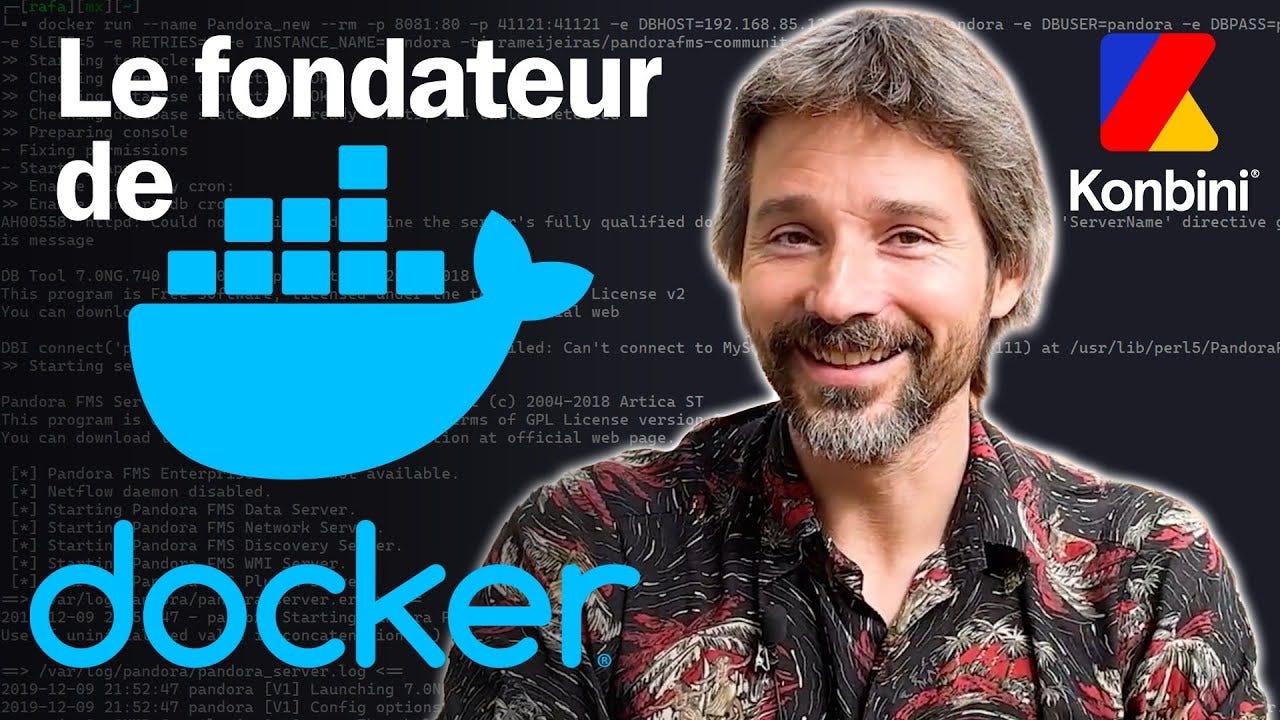
Front
Front is a big success of YC x France x Hexa (ex-E-founders), they raised a total of $203,600,000.00.
Nicolas Dessaigne
From Algolia founder participating into the W14 batch to YC Partner in 2020.
Btw I strongly recommend checking this podcast, don’t want to spoil it but I found it interesting for some point of views.
Raised +10m€
Algolia, Beyond Aero, Carbonfact, Dagger, Docker, Finary.com, Front, Hublo, Jam.gg, Joe, Lago, Mindee, Photoroom, Riot, Slite, Sqreen, Upflow and WhiteLab Genomics.
The Exits
Actiondesk, Allure systems, Bulldozair, ClipDrop, Dashblock, Data Mechanics, Hivy, Hublo, Joe, Motionlead, and Sqreen
They have done it twice and even thrice!
Guillaume Luccisano (French but never did a french startup) with Socialcam (W12), Triplebyte (S15), and Yuma (W23).
Solomon Hykes with Docker (S10) and Dagger (W19)
Bastien Beurier with Lantern (S19) and Nango (W23).
Tonje Bakang with Afrostream (S15) and Moots (W22)
Sectors
On the YC Startup Directory where you can find all the startups that did YC, you can see that you can also filter by industry. They split into different main industries: B2B, Consumer, Education, Fintech, Government, Healthcare, Industrials, Real Estate and Construction, and Unspecified
Here are the statistics from Y Combinator for those French companies:
65 B2B
2 AI
7 Analytics
12 Engineering, Product and Design
1 Finance
4 Finance and Accounting
3 Human Resources
4 Infrastructure
5 Marketing
1 Office Management
3 Operations
8 Productivity
1 recruiting and Talent
3 Retail
1 SaaS
4 Sales
4 Security
2 only B2B
9 Consumer
1 AI
1 Apparel and Cosmetics
1 Consumer Electronics
3 Content
1 Gaming
1 Social
1 Virtual and Augmented Reality
10 Fintech
1 Asset Management
2 Banking and Exchange
2 Consumer Finance
1 Crypto
1 Gaming
2 Payments
1 only Fintech
1 Healthcare
Drug Discovery and Delivery
5 Industrials
1 Aviation and Space
4 Climate
1 Real Estate and Construction
1 Construction
The founders
Behind those startups, there are founders. And Here’s an overview of who they are. Who are those 187 founders who did YC with a French company.
Before diving into their backgrounds, I would like to add that I only use the YC website to gather information about who are the founders (e.g. If you click here you can access to the Formance’s YC page where you can find the founder(s)).
Second-time Founders
A notable 34.22% of the founders (64 out of 187) had already built a startup before joining Y Combinator with their company.
Engineering vs Business
150 founders have a background in Engineering (at least a degree in the field).
75 founders have a background in Business.
The numbers indicate a strong dominance of technical founders—engineering backgrounds outnumber business backgrounds by more than 2:1.
Schools
A significant number of YC founders in the French ecosystem come from top-tier schools—100 out of 187, reinforcing the importance of strong academic credentials.
Polytechnique: 29
HEC Paris: 14
Stanford: 11
CentraleSupélec: 11
Experience before YC
I found it interesting to dive into the last job of the founders before they started their company, who participated in YC, and here are the results:
54 came from large corporations.
53 had prior startup experience.
30 were already founders before starting their YC company.
12 had a consulting background.
12 jumped directly from school.
10 were freelancers.
5 came from research.
5 were venture capitalists (VCs).
5 had no available public data on their past experience.
1 from another thing (Commandant at Gendarmerie Nationale, John Banner from Respaid)
So come work in startups or large corporations (especially at GoPro with 5 YC founders)!
Gender
Only 7 womans among the 187 founders (3.74%).
How to be selected by Y Combinator as a French startup?
Tip from a recent founder as I don’t know how to be selected by YC
Stan Girard from Quivr AI (YC W24): “Have a strong background or have traction. For example we had 30k GitHub stars.”
Other tip:
Don't forget that you have to flip legally! You have to be a US company to enter YC!
There is a lot of resources about this part (example this video), I’ll let you discover them!
Is YC useful for a French startup?
I asked Pierre-Louis Biojout (Founder and CTO at Phospho, YC W24) for this part as he did YC and know if it was useful for him or not and because he’s nice and talented. Long live Phospho.

I will only focus on the part of the question about French startups not if YC is helpful for a startup (tldr, it is most of the time).
Go big or go home.
The French ecosystem is way too forgiving to bad founders or bad ideas. In the US, there is no way a zombie company doing zero progress would stay alive for more than a few months. At YC, there is no way this could happened for more than a few weeks. In contrast, in France, it can be years (just go to Station F or Agoranov). And that’s a bad thing for the ecosystem at large, but more importantly for the founders themselves.
You can only learn from people that are better than you at something.
Good news, the density of such people when it comes to entrepreneurship or tech is maximum in the SF Bay Area.
No broken incentives.
At YC, and in the Silicon Valley, there is no broken incentive such as the BPI or “entreprenariat à impact”. Either you are building something people want (the YC’s motto) or you will quickly have to change.
No Mercy, Just Merit.
Teams and individuals aren’t celebrated for who they are, but for what they do every day. YC values MEI (merit, excellence, intelligence) over DEI (diversity, equity and inclusion). Learn to be brutally honest.
Sometimes the only option for French outliers.
At YC, I met many founders that told me no one believed in them when they started out in France (no VC, no accelerator, no public subsidies,...). Partners of YC were the only ones who understood them and gave them a shot. Usually with impressive outcomes. I hope this will change (soon) in France.
Most of the downsides usually presented aren’t actually valid if your goal is to build a billion dollar company: dilution, push to pivot, need to flip the company…
A huge thanks to Pierre-Louis for this invaluable feedback.
Going back to France?
Most of the YC startups came back to France after their YC batch. Let’s look at the advantages and drawbacks to come back to France.
Returning to France post-YC: Pros and cons.
Pros
I recently listened Xavier Niel video to Polytechnique student, from 48:08 to 53:10 you can clearly understand his POV and why going back to France.
Maybe your market is France first, then global, so focus on that and go back to France.
Hiring is cheaper, life is cheaper, and BPI is giving money.
Talent.
Food.
Cons
(Losing) what you built in the US.
A more established and competitive ecosystem.
Flexibility in hiring and firing.
Stay at the core of the best startup ecosystem.
European regulations.
Founders’ view:
Stan Girard from Quivr AI (YC W24): “Yes if deep tech for cheap engineers. No if market is in the US.”
So let’s go back to France or not?
The future
France x YC: more and more French companies. Maybe Nicolas Dessaigne partner’s position was the trigger, or maybe the French ecosystem appeals to Americans?
One thing that it’s important, YC cared about France in the past:
And I believe that they will also care about France in the future:
Over the years, they ran two batches annually: one in Winter and one in Summer. Starting in 2025, they’re increasing to four batches per year—Summer, Winter, Fall, and Spring.
What does this mean?
👉 4 batches = more companies = more opportunities for French startups?
If we’ve 4 companies for each batch, could we see 16 French startups joining this year?
Is it you?
Thanks,
Best,





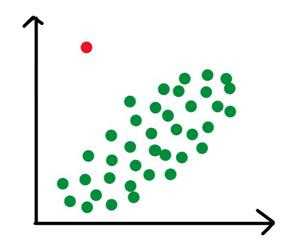
![[Accompagnement] Intégrer Y Combinator, le témoignage de Nicolas Dessaigne, CEO d'Algolia [Accompagnement] Intégrer Y Combinator, le témoignage de Nicolas Dessaigne, CEO d'Algolia](https://substackcdn.com/image/fetch/$s_!P2bY!,w_1456,c_limit,f_auto,q_auto:good,fl_progressive:steep/https%3A%2F%2Fsubstack-post-media.s3.amazonaws.com%2Fpublic%2Fimages%2Fb68bb108-77ff-45df-b221-d57bd0f0be54_620x349.jpeg)

![EXTRAIT] 10 minutes pour convaincre : le processus de sélection de Y Combinator - Nicolas Dessaigne - Génération Do It Yourself | Podcast on Spotify EXTRAIT] 10 minutes pour convaincre : le processus de sélection de Y Combinator - Nicolas Dessaigne - Génération Do It Yourself | Podcast on Spotify](https://substackcdn.com/image/fetch/$s_!XSuB!,w_1456,c_limit,f_auto,q_auto:good,fl_progressive:steep/https%3A%2F%2Fsubstack-post-media.s3.amazonaws.com%2Fpublic%2Fimages%2F10f1a6fd-add1-45d1-83f0-160edefd700e_640x640.jpeg)



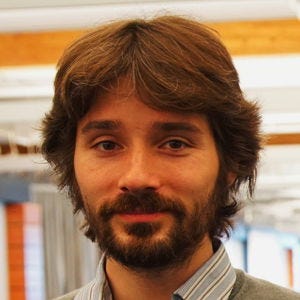
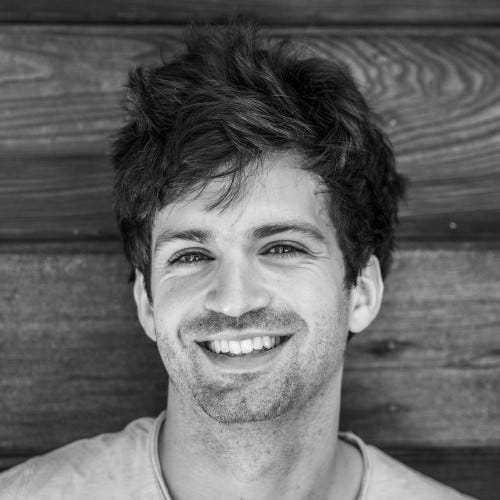
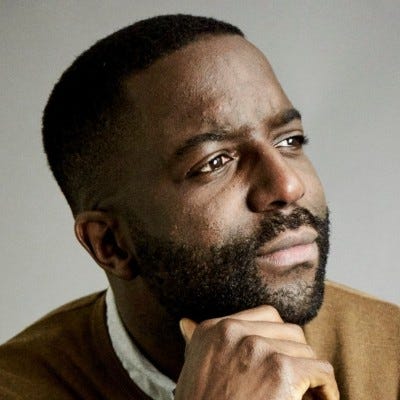

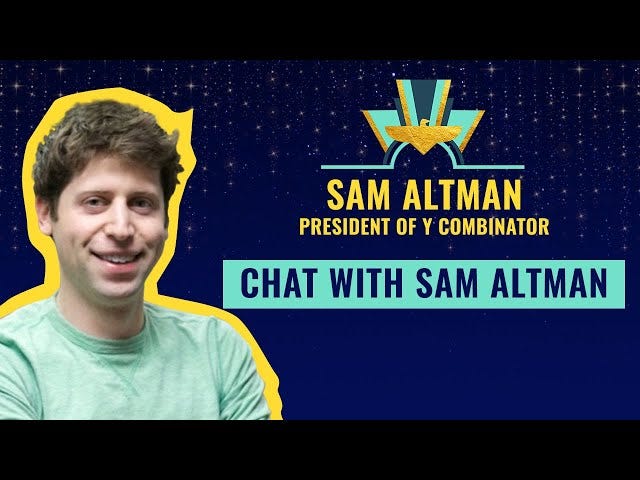

Great work guys! Missing Pulpix and Plato among the acquired companies. Both went through 2016 Winter Batch.
This is some good digging. Got me wondering about the Dutch successes...